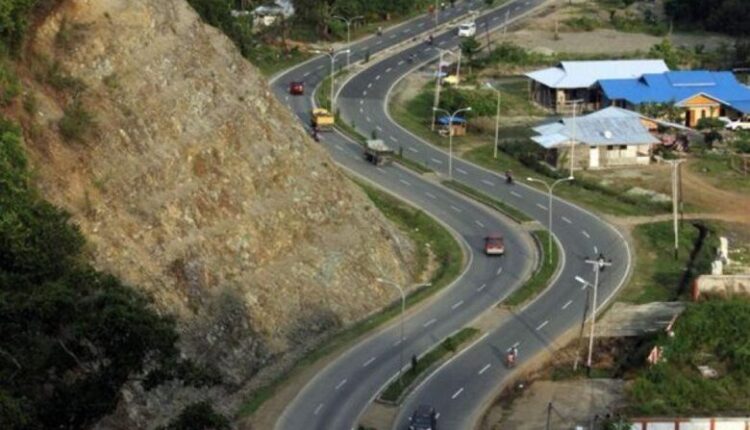Government Intensifies Development of Papua for Community Welfare
By: Steven L. Kogoya )*
Development in Papua during the leadership of President Joko Widodo (Jokowi) has shown significant progress in various sectors. Since the beginning of his term, President Jokowi has committed to accelerating development in Papua in order to improve the welfare and quality of life of the people in the region. This success can be seen from various infrastructure projects, improvements in public services, and human resource development (HRD) initiated by the central government.
Since the issuance of Presidential Instruction (Inpres) Number 9 of 2020 concerning the Acceleration of Welfare Development in the Provinces of Papua and West Papua, the government has massively built infrastructure, increased accessibility, and provided decent public facilities. Various ministries and institutions are working together to accelerate the development process, which also involves the Papuan people in various stages of its implementation.
Member of Commission IV of the Indonesian House of Representatives, Sulaeman L. Hamzah said that the development of Papua has indeed become one of the main focuses in the era of President Jokowi. In his view, the steps taken by the government have succeeded in improving the welfare of the community, especially in terms of accessibility and public services. Development in Papua is not only limited to physical infrastructure, but also includes broader social and economic development.
A similar view came from the Head of the Jayapura Regency Interfaith Communication Forum (FKUB), Albert Yoku, who also appreciated the central government’s steps in developing Papua. According to him, the Papuan people can now feel the benefits of various development projects that have been carried out. He also emphasized that President Jokowi’s commitment to Papua has had a positive impact, not only in the field of infrastructure but also in the social and economic life of the community.
One of the greatest achievements in the Jokowi era is the development of infrastructure that has drastically changed accessibility in Papua. The Trans Papua Road Project is one of the main examples of this success. With the construction of roads connecting various remote areas, people now have easier access to health services, education, and other economic activities. The Trans Papua Road also helps smooth the distribution of goods and services, which has an impact on economic growth in the region.
In addition to the Trans Papua Road, the construction of airports, ports, and other public facilities also strengthen Papua’s connectivity with other regions in Indonesia. This easier access allows for increased mobility of goods and people, which in turn increases economic and social interaction in Papua. Strong infrastructure has become the foundation for sustainable development in the region, while opening up opportunities for investment and tourism.
However, infrastructure development in Papua is not only about physical accessibility. The government is also building educational, health, and other social facilities to support the welfare of the Papuan people as a whole. Thus, this effort is not only aimed at reducing regional inequality, but also at improving the standard of living of the people directly.
Another main focus of development in the era of President Jokowi is the development of human resources in Papua. One of the highlighted flagship programs is the provision of scholarships for Papuan students to continue their education at home or abroad. This program is designed to improve the quality of education in Papua and produce a superior and highly competitive young generation. Thus, young Papuans are expected to be able to contribute more to the development of their region.
The establishment of the Papua Youth Creative Hub (PYCH) is proof of the government’s commitment to developing human resources in Papua. Through PYCH, young Papuans receive training in various fields such as technology, entrepreneurship, and creative arts. This step is in line with President Jokowi’s vision to create superior human resources who are ready to compete at the national and international levels. Development in Papua is no longer just about infrastructure, but also more inclusive and sustainable community empowerment.
Programs like PYCH enable young Papuans to receive creative and technical training, so they can contribute to the development of their own region. In addition, this step helps create wider employment opportunities for the younger generation of Papuans, which in turn drives local economic growth. This sustainable human resource development is an integral part of President Jokowi’s grand vision to build a more inclusive and equitable Indonesia.
Despite much progress, development challenges in Papua remain. Papua’s vast territory and difficult geographical conditions often become obstacles in the development process, especially in remote areas that are still difficult to access. However, with a strong foundation and continued commitment, these challenges can be overcome.
The sustainability of development in Papua will depend heavily on the next government. High hopes are placed on the President-elect, Prabowo Subianto, and the Vice President-elect, Gibran Rakabuming Raka, to continue the programs pioneered by President Jokowi. The development that has begun requires continuity so that its benefits can be optimally felt by the Papuan people.
With the foundation laid during President Jokowi’s two terms in office, Papua is now on the right track towards increasing prosperity and sustainable progress. The success of this development is a strong capital for Papua to continue to develop and reach its maximum potential.
Development in Papua during the Jokowi era has brought about major changes that are worthy of appreciation. Massive infrastructure, increased accessibility, and social programs targeting the welfare of the Papuan people are real manifestations of the central government’s commitment. Papua is no longer seen as a disadvantaged region, but as an integral part of national development.
With strong synergy between the central government, regions, and the community, Papua is expected to continue to develop and progress. Challenges still exist, but with the right policies and ongoing commitment, Papua has great potential to become a prosperous region and contribute maximally to Indonesia.
)* The author is a Papuan student in Yogyakarta
